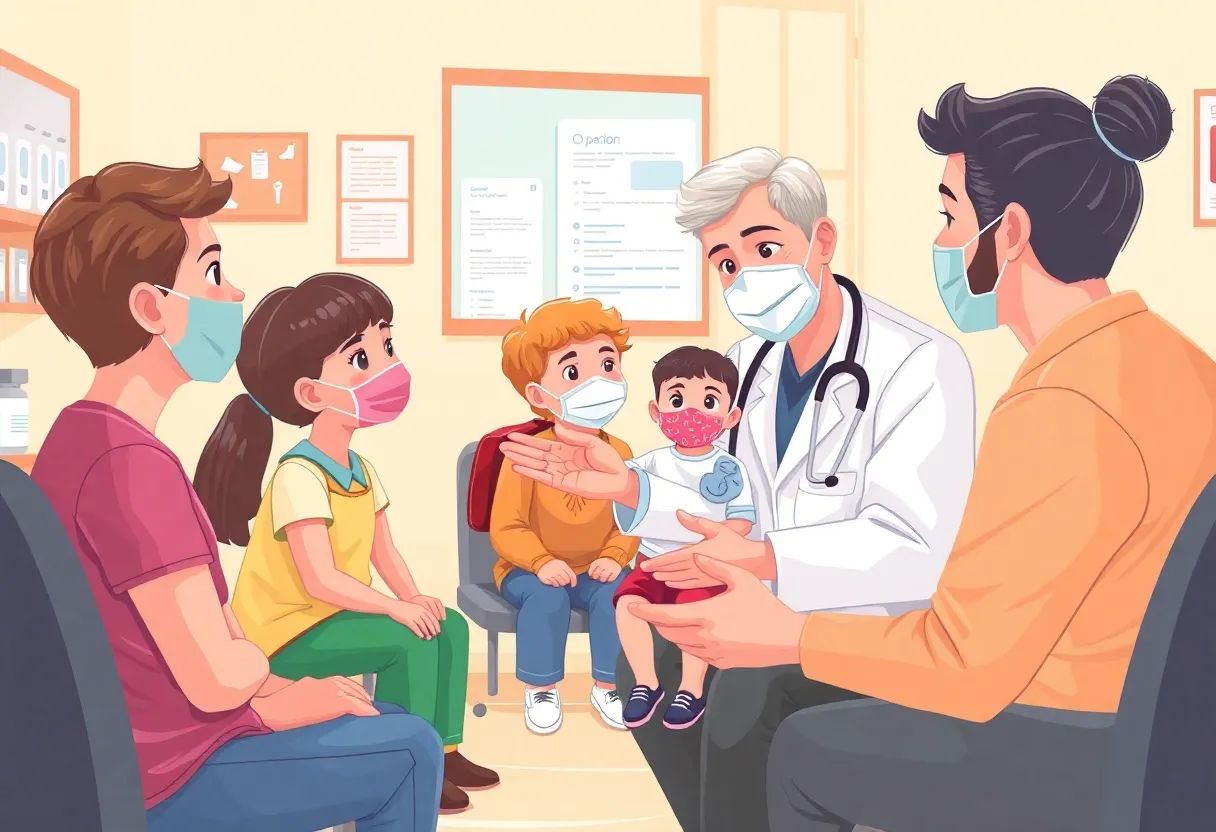

Healthcare providers encourage open discussions about vaccine options for families.
The CDC has revised its COVID-19 vaccine recommendations for healthy children and pregnant women, suggesting shared decision-making with healthcare providers. The previous recommendation for everyone aged 6 months and older to get vaccinated has been overturned. This decision has led to mixed reactions from health professionals, with concerns over lower vaccination rates among these vulnerable groups. As confusion spreads, families are left uncertain about the implications for vaccination coverage and public health amidst continuing COVID-19 risks.
In a recent twist, the U.S. Department of Health and Human Services has decided to change the game when it comes to COVID-19 vaccine recommendations for healthy children and pregnant women. Previously, the Centers for Disease Control and Prevention (CDC) had suggested that *everyone aged 6 months and older should roll up their sleeves for the vaccine*, but now, things are looking a bit different.
The CDC is now saying that the decision to vaccinate should be made through *“shared clinical decision-making.”* This essentially means that parents should chat with healthcare providers to decide what’s best for their little ones when it comes to the vaccine. However, no strong guidelines have been issued specifically for pregnant women regarding vaccination, leaving many feeling unsure and anxious.
This shift has sparked quite the kerfuffle among health professionals. Many leading pediatricians and obstetricians are voicing their concerns that removing the vaccine recommendation lacks adequate backing, especially given the potential risks that COVID-19 poses to vulnerable populations, including pregnant women. Experts have underscored that the vaccine is generally *safe during pregnancy*, providing protection not just for mothers but also for their newborns.
The announcement has undoubtedly added a layer of *confusion* for everyone involved—from patients to medical providers, and even insurance companies. Previously, a mere 13% of children and 14.4% of pregnant women had received the latest COVID-19 vaccine by late April, highlighting that many in these categories may still be hesitant.
It’s also critical to keep in mind that since last October, the pandemic has resulted in between *31,000 and 50,000 COVID-related deaths* and *270,000 to 430,000 COVID hospitalizations*. This reality further emphasizes the importance of vaccinations, especially for those at higher risk.
Parents may still find that insurance companies are willing to cover vaccinations for children. However, uncertainty looms when it comes to the coverage of vaccines for pregnant women. As insurance companies determine how to navigate this change in recommendations, the coverage landscape could shift in unexpected ways.
Critics are raising eyebrows over how this decision appears to sidestep the typical process of vaccine recommendations that is usually endorsed by the Advisory Committee on Immunization Practices. Experts warn that this move could lead to *lower vaccination rates* among children and pregnant women, which could have wide-reaching implications for public health.
In light of the CDC’s new stance, the California Department of Public Health has stepped up to reaffirm its encouragement for COVID-19 vaccinations for individuals aged 6 months and older. But the mix-up surrounding recommendations for pregnant women continues to raise alarm bells, particularly because they are seen as at a higher risk for more severe outcomes from COVID-19 due to natural changes in the immune system.
While the CDC still lists the COVID-19 vaccine among the recommended vaccines for children, this topsy-turvy situation leaves many families scratching their heads about what it really means. The inconsistency in federal messaging could create significant challenges for public health initiatives aimed at protecting our communities, which is certainly something we all want to see. Will this shift impact vaccination rates? It remains to be seen, but one thing is clear: families deserve clarity and consistent guidance as we navigate this ongoing pandemic.
News Summary The Texas A&M-Fort Worth campus is undergoing significant expansion, bringing in a new…
News Summary Texas has enacted the Responsible Artificial Intelligence Governance Act (TRAIGA), signed by Governor…
News Summary The City of Austin plans to release about 350 sterile grass carp into…
News Summary The Alexander family in Central Texas has filed a 142-page lawsuit against developer…
News Summary An overnight shooting outside the Diablas nightclub in northeast Austin injured four individuals…
News Summary The Veterans of Foreign Wars (VFW) organization in Leander is expanding its facilities…